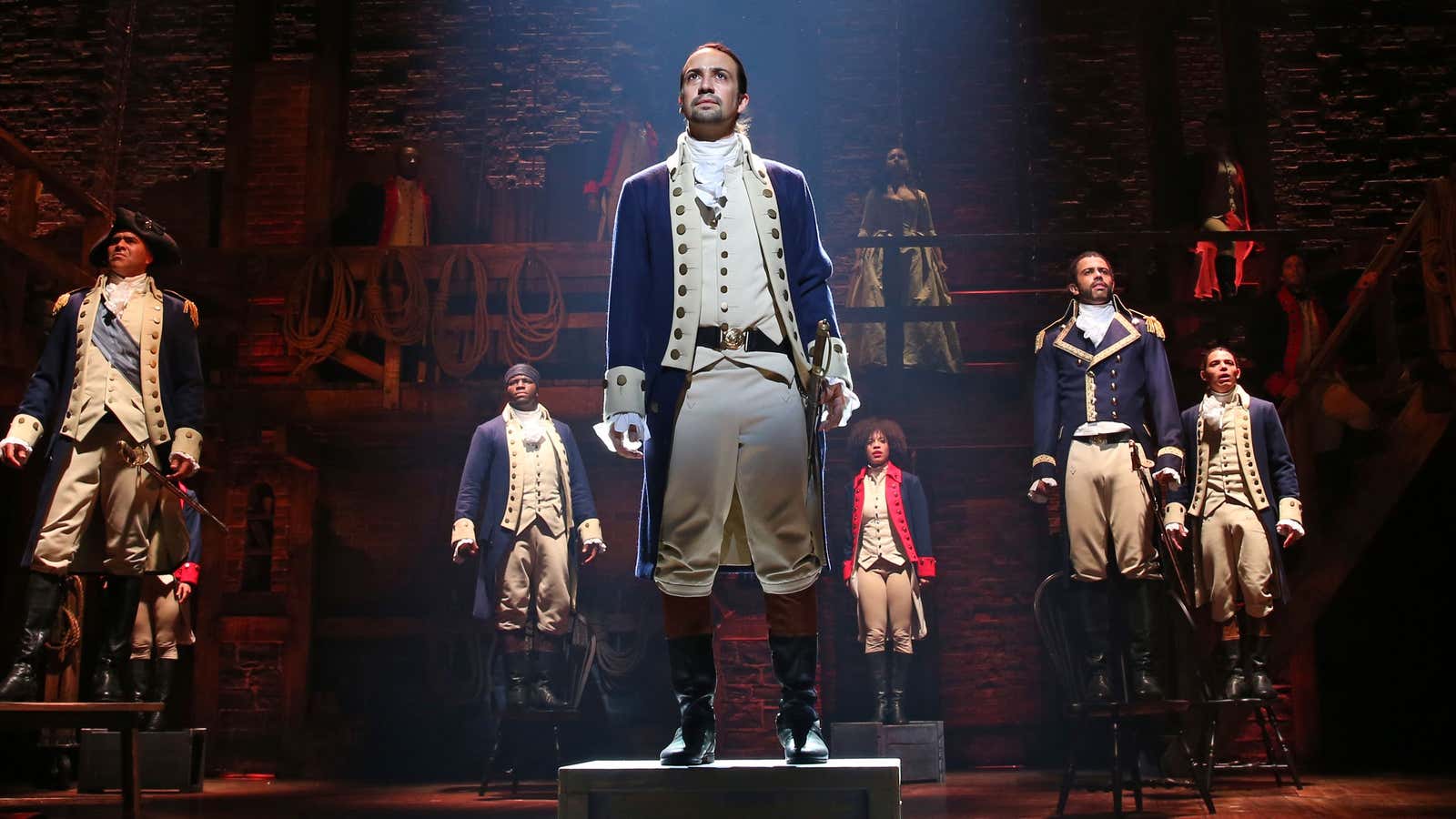Robots are making it impossible to get tickets to Hamilton, according to creator and star Lin-Manuel Miranda.
Tickets for the universally acclaimed musical about American founding father Alexander Hamilton often sell out in seconds, and are then re-sold on sites like Stubhub at a staggering mark-up. Miranda blames illegal “ticket bots”—software that can swamp online ticket sites with flurries of orders. He wants to “strengthen the existing law and make this recurrent illegal behavior a felony,” he wrote in a New York Times op-ed this week.
The basic problem is obvious: The demand for tickets vastly outweigh the supply. But one important factor is completely under the control of the Hamilton producers: They are significantly underpricing tickets, even with face values of up to $475 a pop.
The true price set by the market, of course, is the one people are paying on Stubhub: Up to $5,000 each, with an average price of $872 and a mark-up of $700, according to a separate analysis by the Times. With up to 22% of an average show’s tickets for sale on the secondary market, multiplied by eight shows a week in the 1,321-seat Richard Rodgers Theater, scalpers are making about $60 million a year on Hamilton.
Hamilton, of course, is not hurting financially. It’s on track to gross $100 million a year from Broadway ticket sales. But the situation is highly vexing to its creators and fans alike. The same dynamic often plays out with rock concerts, where musicians want to set prices at a level that “true fans” can afford. But underpricing tickets just puts more of the profits in the hands of scalpers, who have grown adept at gaming online ticket-buying platforms like Ticketmaster.
A better solution would be to adopt truly dynamic pricing, with no set face value or ceiling, for the majority of seats at the Richard Roberts. Yes, that would make the tickets dramatically more expensive, and no doubt narrow the audience demographics from a wealth perspective—tough optics for a show that celebrates diversity and egalitarianism.
The producers could ensure the economic diversity of the audience by dramatically expanding the same-day lottery that currently offers 21 front-row seats for $10 each. Some back-of-the-envelope math suggests that the show could sell just 20% of tickets at the average Stubhub selling price of $872 and give away the rest for free, without any loss of revenue.
Of course, the logistics of distributing hundreds of tickets a night to lottery winners would be a huge headache, and it would create new incentives for those very same scalpers to hijack the process. But the current situation is not working either, as Miranda admits.
If an expanded lottery is a no-go, the show might consider charging full-market price for all tickets and giving a portion of the proceeds to charity. That would preserve the free-market mechanisms that Hamilton admired, while living up to the expectations that Miranda has set for his fans.
